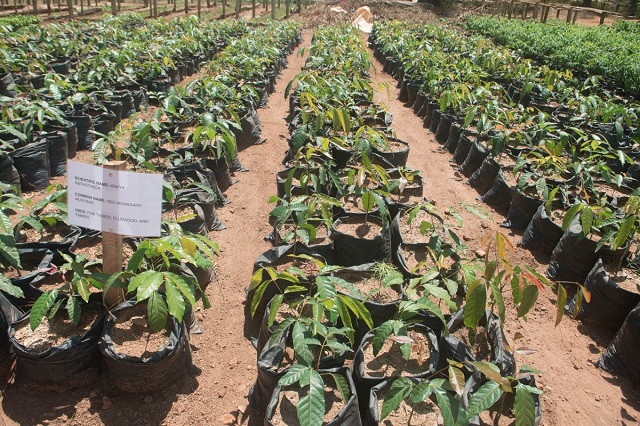
Masaka, Uganda | THE INDEPENDENT | Masaka Catholic Diocese has embarked on a campaign to promote the planting of indigenous tree species.
The campaign, approved by the Diocesan Bishop Serverus Jjumba, will have the church use its structures to participate and mobilize for the planting of indigenous tree species across the diocese.
Bishop Jjumba has directed all church leaders in the 58 parishes and sub-parish levels to undertake interventions towards preservation and restoration of the destroyed environment, by putting more emphasis on the planting of native tree species.
He indicates that his instruction has been customized from Pope Francis’s general appeal to the Church globally, to take proper care of the planet and to minimize harm to nature, for the purposes of saving lives.
He demands that every event conducted in the church within the diocese has a special component for tree planting and has instructed all priests and leaders of the laity to ensure that the instruction is strictly respected.
Some of the traditional tree species that are being focused on according to Bishop Jjumba include; Mahogany, Milcia excelsa-Mvule, Ficus tree commonly known as Mutuba, Maesopsis eminii (Musizi), Markhamia lutea (Musambya) Prunus Africana (Entaseesa) among others, that have both traditional medicinal values and complementation to nature.
Using the analogy of the traditional presuppositions that protected the environment through instilling fear among the public that would violate it, Bishop Jjumba says that they may also consider invoking similar philosophies to safeguard nature which is generally at great danger of destruction by human beings.
He explains that their campaign is intended to raise public consciousness and sensitiveness towards the environment.
He has also asked the faithful in the diocese to embrace the idea of using trees as natural souvenirs for all the commemorative events that occur in their lives.
Revered Fr Deusdedit Luyimbaazi, the Masaka Diocesan Estates Manager says they have started identifying partners that have the will to support the campaign, by providing them with required tree seedlings as many as they can.
In addition to the individual Christians who are encouraged to plant the trees, Fr. Luyimbaazi says the dioceses are also dedicating parts of their land to planting artificial forests comprised of the identified indigenous tree species.
Besides replacing the lost tree vegetation cover, Fr Luyimbaazi is optimistic that the campaign will also help suppress the growing habit of planting artificial tree species that are known to be unfriendly to the ecosystem.
*****
URN
 The Independent Uganda: You get the Truth we Pay the Price
The Independent Uganda: You get the Truth we Pay the Price



